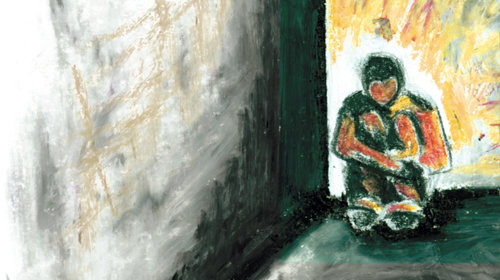
At gunpoint, two 18-year-olds and a 15-year-old a dozen other teenagers at a house party, taking money, phones, and marijuana. No shots were fired, but one of the 18-year-olds struck someone with the butt of his gun.
The crime is unquestionably serious. Witnessing a robbery can cause severe psychological trauma, especially for people younger than 18. For their offense, the two older boys accepted serious prison sentences of 10 and 13 years in exchange for pleading guilty.
But the younger boy, Travion Blount, declined to plead guilty and turned down the prosecution's offer of 18 years in prison. He went to trial, was found guilty, and received a mandatory 118 years in prison, without parole, for 24 firearm countsтeach time Travion or his codefendants held a gun to one of the 12 people, the entire group committed two felonies with a firearm: armed robbery and abduction. On top of that, he received six life sentences. His only chance to exit prison alive is through geriatric release at age 60, which is almost never granted. He will most likely die behind bars.
Other than execution, sentencing someone to be behind bars until they die is our most severe punishment, one that we mostly reserve for people who commit the most egregious murders. In fact, many murderers serve much shorter sentences than Travion's: the average murder/non-negligible manslaughter sentence in the U.S. is . Travion received the same sentence as the . Should a 15-year-old who didn't physically injure anyone receive such an extreme sentence?
Certainly, what should happen to Travion is a difficult question. Yes, he is responsible for committing an offense that deserves serious punishment. But that does not mean he deserves whatever punishment he receives. We share responsibility for his fate. Sentencing laws do not simply appear on the books. Lawmakers, who represent us, put them there. And we are responsible for making sure these sentences are not needlessly cruel and wasteful. Do-the-crime-do-the-time platitudes don't absolve us of that responsibility.
Intuitively, we understand that punishments can be disproportionate. This is clear at extremes such as , , or . Travion's punishment is certainly less barbaric than stoning, but it is still excessive. Life sentences should be reserved for the gravest offenses; Travion's crime, though terrible, is not among them. And what kind of system have we created when the only way to avoid such an extreme sentence is to waive our Constitutional right to trial?
We cannot simply ignore our extreme sentencing problem. The mandatory minimum sentences that applied in Travion's case are part of a larger picture: for the last four decades, this country has excessively and persistently ratcheted up the number of people behind bars and the length of the terms they're serving, needlessly ruining millions of lives and costing taxpayers billions. Our country's obsession with extreme sentencing has swept in too many people, and it's time to undo some of this damage.
Kids like Travion do not need to die behind bars. We can choose instead not to allow armed robbery to result in a if no physical injury occurs. We can choose instead not to allow 24 mandatory terms to if they occur in the course of overlapping events. We can choose instead to hold Travion accountable for the significant harms he has caused without treating him with the same severity as those guilty of the most heinous wrongs. We can, and we should.
You can read more about the case and see a step-by-step account of Travion's crime at the Virginian-Pilot's .
For more on extreme sentencing, check out the РЯАФУХПЊНБНсЙћ's new report .
Learn more about juvenile detention and other civil liberties issues: Sign up for breaking news alerts, , and .


